R-Max Product Comparisons
Articles
Abrasion or erosion is the mechanical wearing away of a solid. In industrial processes, abrasion or erosion is a major concern and a maintenance issue. In the high temperature processes, monolithic refractories play a major role in reducing the detrimental effects of abrasion or erosion on the availability and economics of the industrial process. R-MAX abrasion resistant products are formulated to minimize downtime and maximize the availability of abrasion-prone processes.
R-MAX MP is a 2400°F (1260°C) multi-purpose (MP) abrasion resistant castable which can be hand-packed, rammed, and gunned. The product’s zero-slump and soft, “easy to install” texture results in high handpack installation rates. R-MAX MP can be hand-packed or rammed directly into hexmesh for abrasion resistant linings. R-MAX MP features extremely high cold crushing strength and extremely low abrasion loss.
R-Max C, R-MAX PC and R-MAX G are 3200°F (1760°C) low cement, high performance castables that are designed to have very low abrasion loss and maximized physical properties. R-MAX C can be installed by vibration casting methods. R-MAX PC can be installed by pump casting methods. R-MAX G is installed using conventional dry-gunning equipment.
FURNACUBED R-MAX is a 70% alumina, high performance castable that has excellent non-wetting characteristics in molten aluminum contact applications. It also has maximum abrasion resistance and high strengths. This product is intended to be used in high wear areas of aluminum melting furnaces. It can be installed using vibration casting, pumping, or shotcrete methods.
R-MAX SF is a self-leveling, abrasion resistant castable that should be used in areas of severe abrasion and when a self leveling castable is desired. This product has a maximum service temperature of 3400°F and a 93% alumina content.
R-MAX PC QT is a unique 80% alumina abrasion resistant castable that does not require a traditional "ramp and hold" heat up procedure. This castable can be installed by virbration cast, or pump casting methods.
| Product | R-Max MP | R-Max C | R-Max SF | Furnacubed R-Max | R-Max PC | R-Max PC QT | R-Max G | |
| Maximum Service Temp | ºF | 2400 | 3200 | 3400 | 2730 | 3200 | 3200 | 32 00 |
| ºC | 1260 | 1760 | 1870 | 1499 | 1760 | 1760 | 1760 | |
| Bulk Density | lb/Ft3 220ºF | 170 | 182 | 173 | 170 | 164 | ||
| kg/m3, 110ºC | 2720 | 2912 | 2768 | 2720 | 2624 | |||
| 180 | 167 | 180 | 170 | 167 | 174 | 159 | ||
| kg/m3, 815ºC | 2880 | 2672 | 2880 | 2720 | 2672 | 2784 | 2544 | |
| Cold Crushing Strength | lb/Ft2 1500ºF | 20000-25000 | 20000-25000 | 18000-22000 | 20000-25000 | 12000-15000 | 21500 | 10000-14000 |
| kg/cm2, 815ºC | 1400-1750 | 1400-1750 | 1260-1540 | 1400-1750 | 840-1050 | 1505 | 700-980 | |
| Modulus of Rupture | lb/Ft2 1500ºF | 4000-7000 | 2500-3300 | 4000-6000 | 2500-3300 | 2500-3500 | 1800-2300 | |
| kg/cm2, 815ºC | 280-490 | 175-231 | 280-420 | 175-231 | 175-231 | 126-161 | ||
| Thermal Conductivity (K-Factor) | BTU,ft2,in.,1000ºF | 12.1 | 11.0 | 12.0 | 11.0 | 11.0 | 11.0 | |
| W/m, K, 540ºC | 1.74 | 1.59 | 1.73 | 1.59 | 1.59 | 1.59 | ||
| BTU,ft2,in.,1500ºF | 11.2 | 10.0 | 11.0 | 10.0 | 10.0 | 10.0 | ||
| W/m, K, 815ºC | 1.61 | 1.44 | 1.58 | 1.44 | 1.44 | 1.44 | ||
| BTU,ft2,in.,2000ºF | 10.0 | 11.0 | 10.0 | 10.0 | 10.0 | |||
| W/m, K, 1095ºC | 1.44 | 1.6 | 1.44 | 1.44 | 1.44 | |||
| Erosion Loss | cc, 1500ºF (815ºC) | <4.0 | <4.0 | <4.0 | <4.0 | <5.0 | 3.0 | <5.0 |
| Permanent Linear Change | %, 1500ºF (815ºC) | -0.2 to -0.4 | -0.1 to -0.3 | -0.1 to -0.3 | -0.1 to -0.3 | -0.1 to -0.3 | -0.1 | -0.1 to -0.4 |
| Chemical Analysis | Al2O3 | 79.5 | 71.2 | 92.8 | 71.9 | 71.2 | 80.2 | 73.1 |
| SiO2 | 11.7 | 24.1 | 5.4 | 23.2 | 24.1 | 14.2 | 22 | |
| Fe2O3 | 0.9 | 1.3 | 0.1 | 0.8 | 1.3 | 1.1 | 1.4 | |
| TiO2 | 2.2 | 1.5 | 1.9 | 1.5 | 2.7 | 1.6 | ||
| CaO | 2.9 | 1.7 | 1.5 | 1.8 | 1.7 | 1.1 | 1.7 | |
| MgO | 2.9 | 0.2 | ||||||
| Alkalies | 0.2 | 0.2 | 0.4 | 0.2 | 0.5 |

